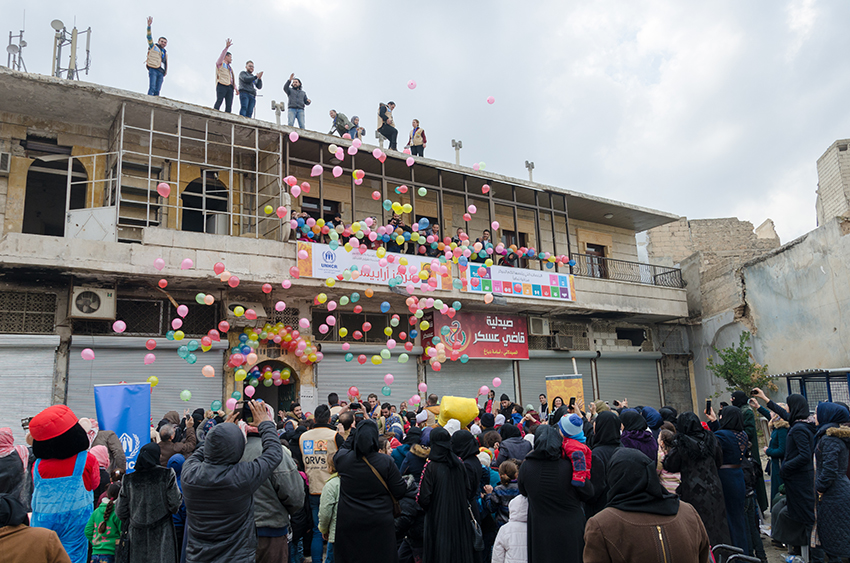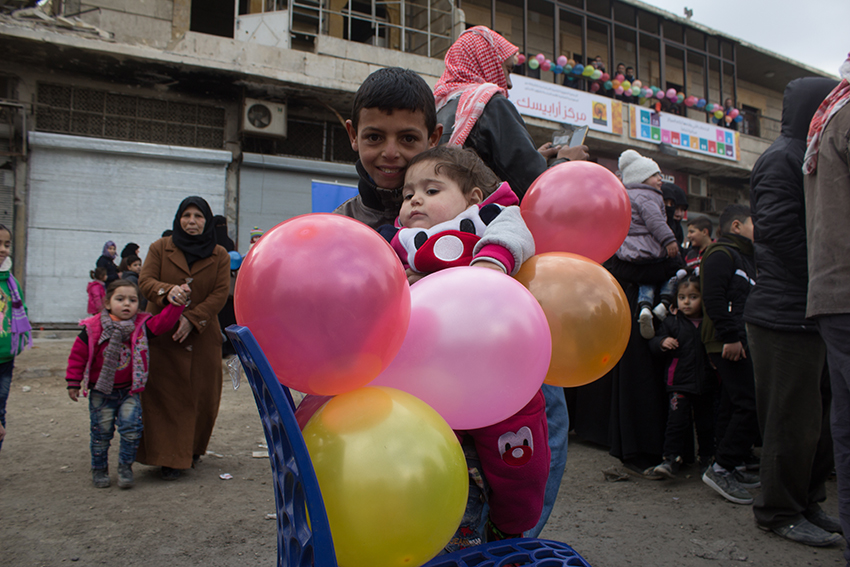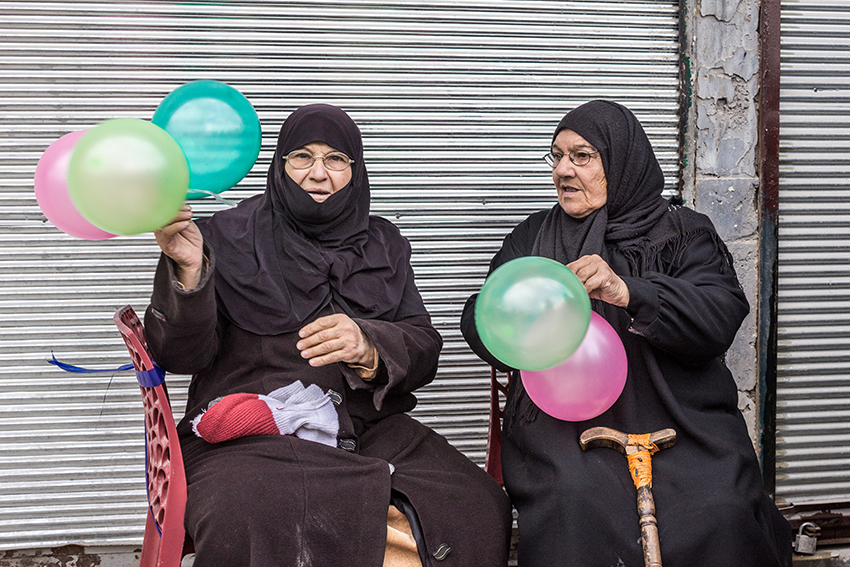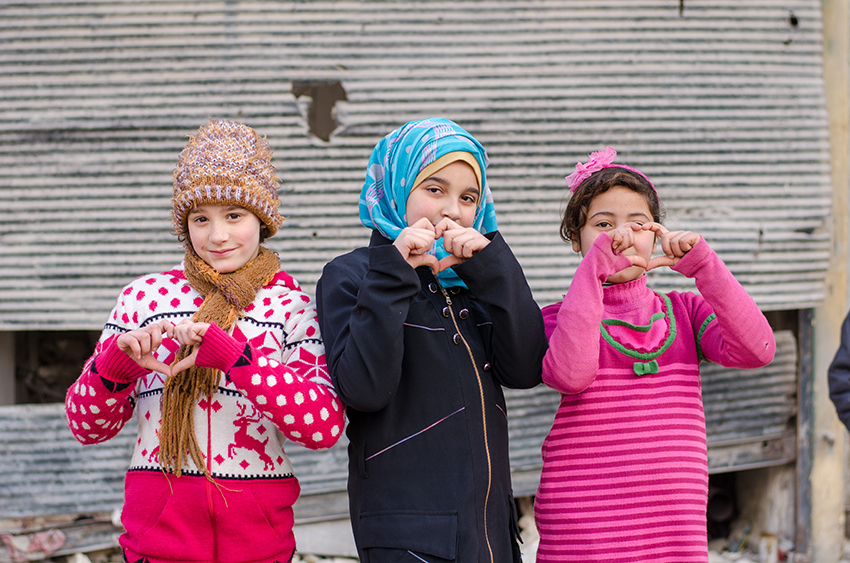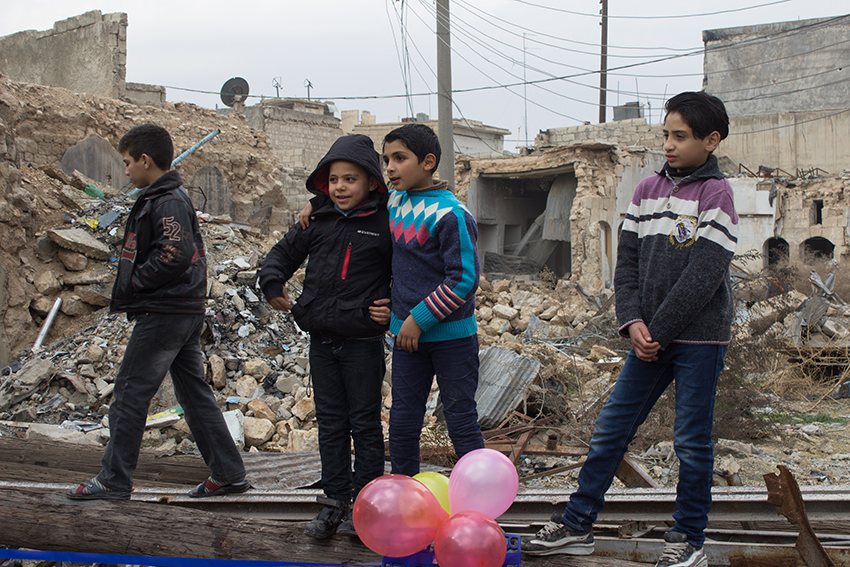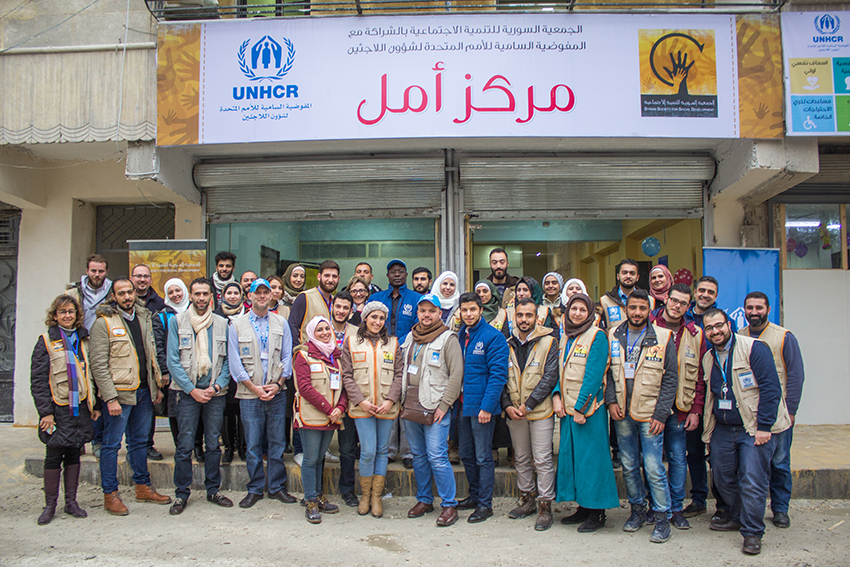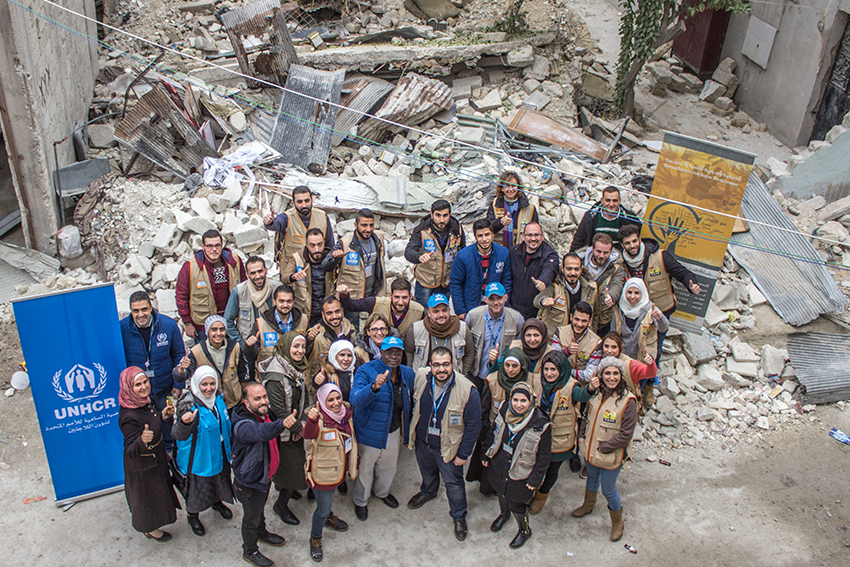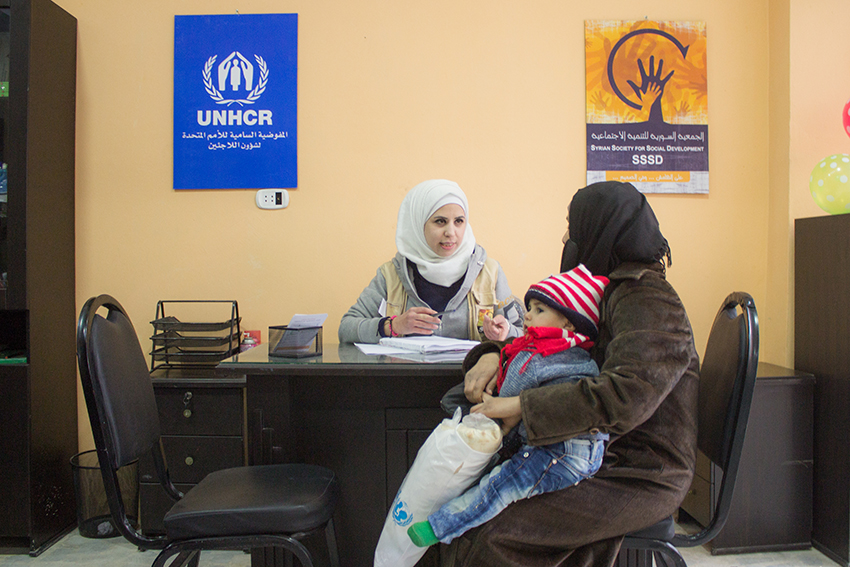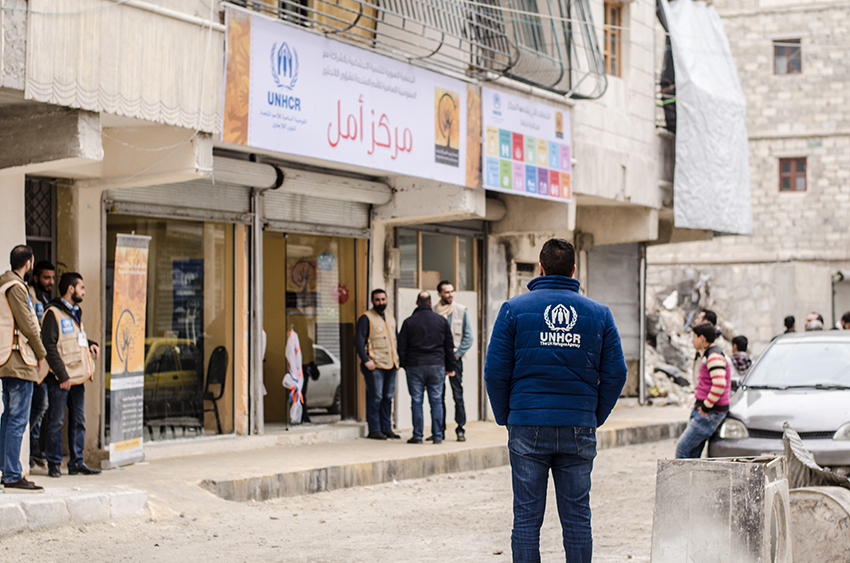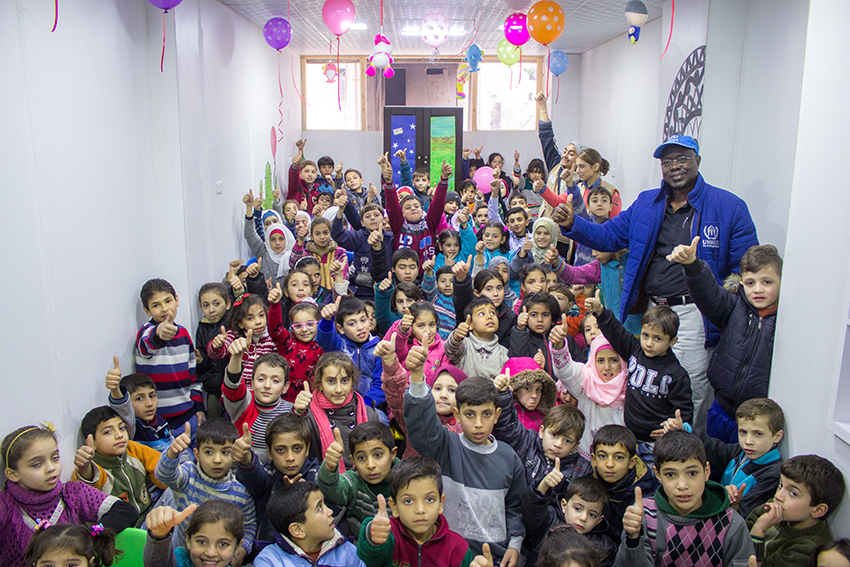New Community Centres open and expand assistance to vulnerable people in east Aleppo
Two new community centers open in East Aleppo to support voluntary returnees, the displaced people and host community.
DAMASCUS, Syria – Two new community centres open in various districts in eastern Aleppo. The centres are a product of fruitful cooperation between local partners and the UN Refugee Agency.
In December 2017, UNHCR, the UN Refugees Agency in cooperation with the Syrian Society for Social Development (SSSD), opened “Arabisk” centre in Qadi Askar district, it is estimated that the centre will provide services to 35,000 people living in the area.
The second centre is located in Fardous district and is designed to provide support to 36,560 people. The centre is called “Amal” which means hope in the Arabic language.
The new centres provide social services to tens of thousands of people living in East Aleppo. These centres are designed to support the returnees and the internally displaced people to regain control of their lives and cope with the daily struggle as the area witnessed major damage and destruction to infrastructure and halted basic services over the last six years.
Today, there are five community centres in east Aleppo with the support from UNHCR. The centres are located in districts of Sakhour, Al-Shaar, Kallaseh, Qadi Askar and Fardous.
UNHCR’s community centres were created to strengthen the sense of self-efficacy, reinforce resilience and reduce vulnerabilities, these centres provide a basket of services: support children to enroll in school and continue education, psycho-social support, legal aid including birth registration and documentation, and job training to generate income and many other various services.
As of today, UNHCR operates 92 community centres across the country supported by 40 mobile units in 11 Syrian governorates with a number of 1,838 outreach volunteers working in different thematic areas, seeking to reach out to the most vulnerable people with the aid much needed.

